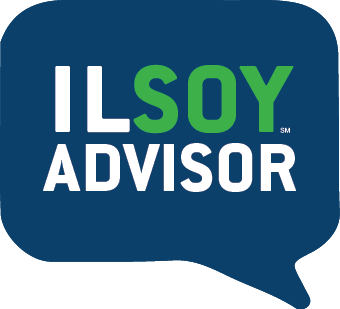As our farm businesses use tax planning tactics to reduce current tax liability impacts, we do not completely reduce the tax but move the tax to a future year. This webinar will provide details on the importance of identifying and calculating your operation’s deferred tax liability and how that can affect your current and future strategic farm management decisions.
Presenter: Dick Wittman, Wittman Consulting, Farm Manager/Family Business... Read More →
ILSOYADVISOR POST
Preparing for Planting Amidst Social Distancing
April 10, 2020
By Todd Steinacher and Jessie Shoopman
Amid the COVID-19 outbreak, we all need to do our parts and practice social distancing. At the same time farming doesn’t stop, so here are five steps you should take to prepare for the spring while protecting your and your communities’ health.
1. Prepare for herbicide application. Instead of arranging plans for herbicide application with your local retailer in their office, this spring you may not have the opportunity to meet in person for 2020 plans. Below are some tips to help your operation be proactive during social distancing so that your needs are properly and timely met.
- Pre-print field maps and give them to your retailer or save them as PDFs that can be texted or emailed to a third party. One idea is to share a portfolio of your information with the retail office in case you are in need of service and your salesman is unavailable when you call.
- Highlight all areas of each given field and label corn and soybean acres to eliminate confusion.
- Label the herbicide trait type used in each field. Make sure your retailer can clearly identify any changes in traits planted across your acres. The more information you provide, the better.
- Speak with your retailer and other suppliers about how you would like to exchange information during this time. Be proactive and let your suppliers know your preferred communication channel and whether you are comfortable with responding to information via text message, email, video chat or another format.
2. Work with your lenders during social distancing. Instead of planning to meet with your lender in person as you normally do, this spring will give you the opportunity to test out new technology and find new ways to communicate with your essential business partners.
- Be willing to meet with your lender virtually
- Prepare your documents ahead of time
- Be open to working with a different lender than normal
- Be open to signing documents virtually
3. Finalizing your 2020 tax returns. If you haven’t done so already, you will need to find an efficient and secure way to submit tax documents to your tax preparer. Work with your tax preparer to identify the best way to provide that information to their office.
- Federal returns are now due July 15, 2020
- Even though the filing deadline has been delayed don’t wait until the last minute.
- https://www.irs.gov/newsroom/tax-day-now-july-15-treasury-irs-extend-filing-deadline-and-federal-tax-payments-regardless-of-amount-owed
- Be willing to meet with your accountant virtually.
- Use secure file transfers to send important tax documents.
4. Evaluate corn and soybean stands for potential replant or issues. In most years, producers and their agronomic consultants could evaluate stands or potential issues in fields together. However, this year has created unforeseen challenges. Some industry professionals are being advised by their employers to proceed with caution and minimize direct contact during this planting season, so please take this into consideration as your needs arise. Here are some tips to consider to improve field service calls:
- Send pictures to your agronomist to help identify causes of potential issues without a field visit.
- Be willing to meet at the field and maintain a safe distance to protect both your agronomist and your own health.
- Be willing to conduct virtual service calls with your supplier or agronomist. Technology can bring the field to your consultant.
- Allow for extended time. Business is being conducted a little bit differently than past years so be patient as everyone learns how to incorporate technology into daily service appointments.
- Be willing to conduct business over a phone or email conversation instead of face to face. Not every issue this year needs a face-to-face visit and technology can take its place.
5. Let your family know who to contact in the event you become ill (know your short-term succession plan). Many times, farm operators “just do” whatever tasks need to be completed on the farm each day without involving family members who aren’t involved in the day-to-day operation. Make a list of key contacts for your family to rely on to help with farm chores, repairs, input management, etc.
- Who should they call to complete chores for animals?
- Who is your input provider and how do your loved ones contact those individuals?
- Who is your backup in case someone needs to prepare and plant your fields?





Comments
Add new comment